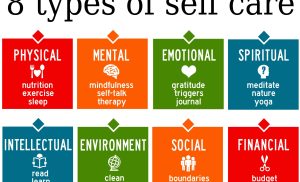Fostering Emotional Intelligence: A Parent’s Guide
In this article, we will explore the importance of fostering emotional intelligence in children and how parents can play a crucial role in nurturing this essential skillset. Emotional intelligence, often referred to as EQ, encompasses the ability to recognize and manage one’s own emotions, as well as empathize with and understand the emotions of others. By developing emotional intelligence, children can improve their communication skills, build healthier relationships, and effectively navigate through life’s challenges. Through helpful tips and strategies, this guide will empower parents to create a supportive environment that promotes emotional intelligence in their children.
Understanding Emotional Intelligence
What is emotional intelligence?
Emotional intelligence refers to the ability to recognize, understand, and manage our own emotions, as well as the emotions of others. It involves being aware of our feelings, expressing them appropriately, and being able to navigate interpersonal relationships with empathy and compassion.
Why is emotional intelligence important?
Emotional intelligence plays a crucial role in our overall well-being and success in life. It helps us build and maintain strong relationships, communicate effectively, and navigate difficult situations. Children with high emotional intelligence are better equipped to handle stress, solve problems, and make sound decisions. It also promotes mental health, resilience, and empathy.
How does emotional intelligence develop in children?
Emotional intelligence development begins in early childhood and continues throughout life. Research suggests that it is influenced by a combination of genetic and environmental factors. Children learn emotional intelligence through their interactions with caregivers, peers, and the broader social environment. It is also shaped by the experiences they have and the emotional modeling they observe from adults.
Factors that influence emotional intelligence development
Several factors contribute to the development of emotional intelligence in children. These include:
- Parenting style: The way parents respond to their child’s emotions and provide guidance in managing them can significantly impact emotional intelligence development.
- Secure attachment: A strong and secure attachment bond between parent and child lays the foundation for emotional intelligence by providing a safe space for emotional expression and regulation.
- Emotional environment: Growing up in an environment that values emotional expression, encourages open communication, and promotes empathy can foster the development of emotional intelligence.
- Social interactions: Positive relationships with peers and opportunities for cooperative play support the development of emotional intelligence through social-emotional learning.
Building a Strong Parent-Child Relationship
Creating a secure attachment bond
Creating a secure attachment bond with your child is crucial for their emotional development. This can be achieved by responding promptly and sensitively to their needs, providing a nurturing and safe environment, and building trust through consistent care and affection. A secure attachment bond helps children feel understood, supported, and loved, which is the foundation for healthy emotional intelligence.
Fostering open communication
Open communication encourages children to express their thoughts and emotions freely. It involves actively listening to your child without judgment, offering validation and empathy, and providing space for them to share their experiences. Creating a safe and non-judgmental environment where children feel comfortable expressing themselves fosters emotional intelligence and strengthens the parent-child relationship.
Showing empathy and understanding
Empathy is a fundamental aspect of emotional intelligence. By demonstrating empathy, you show your child that their feelings are valid and acknowledged. This involves putting yourself in their shoes, validating their emotions, and offering understanding and support. By modeling empathy, you teach them how to empathize with others and develop their emotional intelligence.
Promoting trust and emotional safety
Building trust and emotional safety with your child creates an environment where they feel comfortable expressing themselves and seeking support when needed. Trust is built through consistency, reliability, and creating a safe space for emotional expression. When children trust that their emotions will be respected and validated, they are more likely to develop emotional intelligence and seek guidance when faced with challenges.
Encouraging Emotional Awareness
Teaching children to recognize and label emotions
Helping children develop emotional awareness is essential for emotional intelligence. Encourage them to recognize and label their emotions by using descriptive language and providing examples. Discuss different emotions and their causes, and help your child identify and understand their own emotions. Practicing emotional awareness cultivates self-awareness, emotional intelligence, and enhances their ability to manage their emotions.
Validating and normalizing emotions
It is important to validate and normalize your child’s emotions, even if they may seem challenging or uncomfortable. Letting them know that all emotions are normal and acceptable helps them feel understood and accepted. Avoid dismissing or minimizing their feelings, as this can hinder their emotional intelligence development. Instead, provide reassurance and support, and help them find healthy ways to express their emotions.
Helping children understand the connection between thoughts, feelings, and behaviors
Teaching children about the connection between thoughts, feelings, and behaviors is a valuable lesson in emotional intelligence. Help them understand that our thoughts influence our emotions, and our emotions can impact our behavior. By recognizing this connection, children can learn to regulate their emotions and make more informed choices in their actions.
Promoting self-reflection and introspection
Encourage your child to reflect on their emotions and experiences. Help them explore the triggers and underlying causes of their emotions, and guide them in identifying patterns in their feelings and behaviors. This self-reflection fosters emotional intelligence by promoting self-awareness and insight. Encourage journaling, mindfulness practices, or conversations where they can reflect on their emotions and experiences.
Developing Emotional Regulation Skills
Teaching healthy coping strategies
Helping children develop healthy coping strategies is vital for emotional regulation. Teach them appropriate ways to manage stress and navigate challenging emotions. This can include deep breathing exercises, engaging in physical activities, practicing mindfulness, or engaging in hobbies they enjoy. By providing them with a range of healthy coping strategies, you empower them to handle difficult emotions effectively.
Encouraging relaxation techniques
Relaxation techniques, such as progressive muscle relaxation or guided imagery, can help children calm their minds and bodies when they are feeling overwhelmed. Teach them these techniques and practice them together, so they can utilize them when they need it most. Relaxation techniques promote emotional regulation and equip children with invaluable tools for managing stress.
Promoting self-soothing methods
Teaching children self-soothing methods helps them calm themselves when facing emotional challenges. This can include techniques like repeating positive affirmations, visualizing calming situations, or engaging in sensory activities, such as listening to soothing music or holding a comforting object. By encouraging self-soothing methods, you empower your child to take control of their emotions and practice self-regulation.
Teaching problem-solving and decision-making skills
Problem-solving and decision-making skills are crucial components of emotional intelligence. Help your child develop these skills by involving them in decision-making processes and encouraging them to identify and evaluate possible solutions. Provide guidance in weighing the pros and cons, considering the impact of their decisions, and reflecting on the outcomes. By fostering problem-solving and decision-making skills, you empower your child to navigate challenging situations effectively.
Promoting Empathy and Compassion
Teaching perspective-taking
Perspective-taking is a key aspect of empathy and cultivating emotional intelligence. Encourage your child to consider the thoughts, feelings, and perspectives of others. Help them understand that everyone experiences emotions differently and that empathy involves putting themselves in someone else’s shoes. Engage in conversations that explore different perspectives to nurture their empathetic abilities.
Encouraging acts of kindness and compassion
Acts of kindness and compassion can significantly impact emotional intelligence. Encourage your child to engage in kind actions, such as helping others, sharing, or showing empathy towards someone in need. Engage in volunteer work or community service activities together, providing opportunities for your child to practice empathy and compassion in real-world contexts.
Modeling empathy in your own interactions
Children learn by observing their parents. Model empathy in your interactions with others, including your child. Show understanding, compassion, and respect when someone is experiencing difficult emotions or facing challenges. Your actions speak louder than words, and by modeling empathy, you teach your child the importance of emotional intelligence in their own relationships.
Encouraging volunteer work and community involvement
Engaging in volunteer work and community involvement provides valuable opportunities for children to develop empathy and enhance their emotional intelligence. Encourage your child to participate in activities that support others, whether it is helping in local charities, fundraising events, or volunteering at community centers. These experiences foster compassion, broaden their perspectives, and strengthen their emotional intelligence.
Teaching Effective Communication Skills
Teaching active listening
Active listening is a vital communication skill that supports emotional intelligence. Teach your child to listen attentively, ask questions, and provide feedback when engaging in conversations. Encourage them to focus on the speaker, maintain eye contact, and reflect on what the speaker is saying. By fostering active listening, you promote understanding, empathy, and effective communication.
Promoting assertiveness and expressing needs
Encourage your child to express their needs, thoughts, and feelings assertively and respectfully. Help them understand the importance of clear communication and encourage them to use “I” statements to express themselves. By promoting assertiveness, you empower your child to communicate effectively, set boundaries, and solve problems in a healthy and constructive manner.
Teaching conflict resolution skills
Conflict resolution is an essential skill for developing emotional intelligence. Teach your child effective strategies for resolving conflicts, such as active listening, compromise, and finding win-win solutions. Encourage them to express their feelings without aggression, respect others’ viewpoints, and seek common ground. These skills promote emotional intelligence by fostering understanding, empathy, and the ability to navigate conflicts peacefully.
Encouraging non-verbal communication awareness
Non-verbal communication plays a significant role in emotional intelligence. Help your child understand the importance of body language, facial expressions, and tone of voice in communication. Encourage them to pay attention to non-verbal cues to better understand others’ emotions and respond appropriately. By promoting non-verbal communication awareness, you enhance their ability to empathize and connect with others.
Cultivating Emotional Resilience
Teaching children to embrace challenges and setbacks
Cultivating emotional resilience involves teaching children to embrace challenges and setbacks as opportunities for growth. Encourage your child to view failures or setbacks as learning experiences, promoting a mindset of resilience and perseverance. Help them understand that setbacks are a normal part of life and that they have the capability to overcome them.
Helping children develop a growth mindset
A growth mindset is key to emotional resilience. Teach your child the belief that their abilities and intelligence can be developed through effort and practice. Encourage a positive attitude towards challenges, mistakes, and learning opportunities. By instilling a growth mindset, you equip your child with the resilience and emotional intelligence needed to thrive in various situations.
Teaching problem-solving and critical thinking skills
Problem-solving and critical thinking skills are essential for emotional resilience. Help your child develop these skills by encouraging them to think creatively, consider multiple perspectives, and explore different options. Encourage them to analyze challenges and find effective solutions. By teaching problem-solving and critical thinking skills, you empower your child to approach difficulties with confidence and emotional intelligence.
Encouraging optimism and positive thinking
Optimism and positive thinking contribute to emotional resilience and well-being. Encourage your child to focus on the positive aspects of challenging situations and visualize successful outcomes. Help them reframe negative thoughts into positive ones and emphasize the importance of gratitude and appreciating the good things in life. By promoting optimism and positive thinking, you support emotional resilience and enhance their emotional intelligence.
Fostering Emotional Intelligence Through Play
Encouraging imaginative and pretend play
Imaginative and pretend play offers rich opportunities for fostering emotional intelligence. Encourage your child to engage in role-playing activities where they can explore different emotions and perspectives. Provide them with props, costumes, and open-ended toys to encourage imaginative play and emotional expression. By engaging in pretend play, children develop empathy, emotional awareness, and social-emotional skills.
Promoting social play and cooperative activities
Social play and cooperative activities help children develop their emotional intelligence by navigating relationships with their peers. Encourage your child to participate in group activities, team sports, or cooperative games where they can learn to communicate, share, and collaborate with others. By promoting social play, you foster emotional intelligence, empathy, and social-emotional skills.
Using play as a tool for emotional expression
Play offers a safe and natural outlet for emotional expression. Encourage your child to use play to express their emotions and experiences. Provide them with art supplies, puppets, or storytelling tools to help them communicate their feelings and thoughts through play. By using play as a tool for emotional expression, children can process and understand their emotions, enhancing their emotional intelligence.
Playing games that promote emotional awareness
There are numerous games and activities specifically designed to promote emotional awareness and intelligence. Look for games that involve discussions about emotions, problem-solving, empathy, or social skills. Engage in these games with your child to facilitate meaningful conversations and enhance their emotional intelligence. By playing games that promote emotional awareness, you provide enjoyable opportunities for learning and growth.
Limiting Screen Time and Developing Emotional Connections
Setting healthy boundaries with technology
Limiting screen time is crucial for fostering emotional connections and promoting emotional intelligence. Set clear boundaries on the amount of time your child spends on screens, such as smartphones, tablets, or computers. Encourage tech-free zones, like meal times or family gatherings, to promote face-to-face interactions and emotional connections.
Encouraging face-to-face interactions
Face-to-face interactions provide valuable opportunities for emotional connection and the development of emotional intelligence. Encourage your child to engage in conversations, playdates, or family activities that involve direct interactions with others. Encourage them to read facial expressions, interpret emotions, and respond empathetically. By prioritizing face-to-face interactions, you foster emotional connections and enhance their emotional intelligence.
Promoting family activities and quality time
Regular family activities and quality time are essential for building emotional connections and nurturing emotional intelligence. Plan activities that allow for open communication, expression of emotions, and the opportunity to strengthen bonds. This can include family meals, outings, game nights, or shared hobbies. By promoting family activities and quality time, you create a nurturing environment for emotional growth and development.
Creating a technology-free environment for emotional bonding
Creating a technology-free environment at certain times or for specific activities can promote emotional bonding and support emotional intelligence. Designate specific times or spaces where technology is not allowed, such as during family meals or before bedtime. This allows you and your child to focus on building emotional connections, engaging in meaningful conversations, and strengthening your emotional bond.
Seeking Professional Help and Support
Recognizing when additional help is needed
Recognizing when your child may need additional help in developing emotional intelligence is essential. Keep an eye out for signs of persistent emotional difficulties, challenges in interpersonal relationships, or significant changes in behavior. If you have concerns about your child’s emotional well-being or ability to manage their emotions effectively, consider seeking professional help and support.
Consulting mental health professionals
Mental health professionals, such as therapists or psychologists, can provide invaluable support in fostering emotional intelligence. They can help assess your child’s emotional needs, provide guidance and strategies for emotional regulation, and offer parent-child interventions to enhance emotional connections. Consulting a mental health professional can give you the tools and support needed to foster emotional intelligence effectively.
Support groups and community resources
Support groups and community resources can offer guidance and a sense of belonging for parents seeking to foster emotional intelligence. These resources provide opportunities to connect with other parents facing similar challenges, share experiences, and learn from each other. Look for local support groups or online communities focused on parenting, emotional intelligence, or child development.
Online resources and courses for parents
Numerous online resources and courses are available to help parents develop their understanding of emotional intelligence and learn practical strategies for fostering it in their children. Online courses, webinars, blogs, and books can all provide valuable information and tips for nurturing emotional intelligence. Explore these resources to expand your knowledge and access practical tools for supporting your child’s emotional development.
In conclusion, fostering emotional intelligence in children is a vital task for parents. By understanding what emotional intelligence is, its importance, and how it develops, parents can actively promote its growth. Building a strong parent-child relationship, encouraging emotional awareness, developing emotional regulation skills, promoting empathy and compassion, teaching effective communication skills, cultivating emotional resilience, fostering emotional intelligence through play, limiting screen time, and seeking professional help and support are all effective strategies for nurturing emotional intelligence in children. By implementing these strategies, parents can empower their children to navigate emotions, relationships, and challenges with resilience, empathy, and emotional intelligence, setting them up for success in all aspects of life.

















